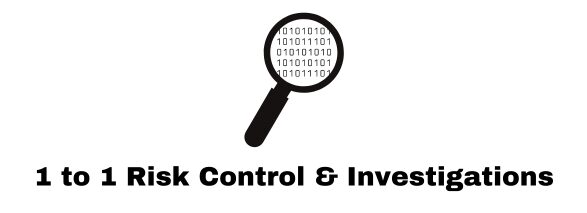405-458-5710
Confidentiality Guaranteed
405-458-5710
Confidentiality Guaranteed
You are Reading:
-
1 to 1 Risk Control & Investigations > Blog > Geo-Political > The Threats to the United States Posed by TikTok

Jun
The Threats to the United States Posed by TikTok
TikTok
TikTok, a popular social media platform known for its short video content, has taken the world by storm, particularly among younger audiences. While it provides entertainment and a means for creative expression, TikTok has also raised significant concerns regarding national security, privacy, and misinformation. These concerns have led to intense scrutiny from government officials and cybersecurity experts. This blog post explores the various threats posed by TikTok to the United States and why these concerns should be taken seriously.
Data Privacy Concerns
One of the primary threats posed by TikTok involves data privacy. TikTok collects a vast amount of data from its users, including location data, device information, browsing history, and even biometric data such as face and voice prints. This extensive data collection raises concerns about how the data is stored, used, and potentially shared.
The ownership of TikTok by ByteDance, a Chinese company, further exacerbates these concerns. Under Chinese law, companies can be compelled to provide data to the government upon request. This has led to fears that the Chinese government could access sensitive data on American users, posing a significant privacy risk.
Data privacy issues are not limited to potential government access. The way TikTok handles and stores data also poses risks. Data breaches or leaks could expose personal information to cybercriminals, leading to identity theft, financial fraud, and other malicious activities.
National Security Risks
TikTok’s data collection practices have significant national security implications. The potential for the Chinese government to access data on American users raises concerns about espionage and surveillance. This is particularly concerning for individuals with access to sensitive information, such as government employees, military personnel, and contractors.
The app’s ability to collect vast amounts of data could be used to build detailed profiles on individuals, track their movements, and monitor their communications. This information could be leveraged for espionage activities, blackmail, or to influence key individuals in sensitive positions.
Additionally, there are concerns that TikTok could be used to spread propaganda or misinformation. The Chinese government could potentially influence the content displayed on the platform to promote its own narratives, sway public opinion, or create social discord within the United States.
Influence on Youth and Society
TikTok’s popularity among younger audiences has raised concerns about its influence on youth and society. The platform’s algorithm-driven content delivery can create echo chambers, where users are continuously exposed to similar content, reinforcing specific viewpoints and potentially leading to radicalization.
The spread of misinformation on TikTok is another significant issue. False or misleading information can spread rapidly on the platform, influencing public opinion and behavior. This is particularly concerning during critical times, such as elections or public health crises, where misinformation can have severe consequences.
Moreover, the addictive nature of TikTok can have adverse effects on mental health. The constant need for validation through likes and views can lead to anxiety, depression, and other mental health issues, particularly among impressionable young users.
Economic Implications
TikTok’s rapid growth and dominance in the social media landscape have economic implications for the United States. The app’s popularity has made it a significant player in the digital advertising market, competing with American companies such as Facebook, Instagram, and YouTube. This competition can impact the revenues and market share of these companies, potentially affecting the broader economy.
Furthermore, the data collected by TikTok can provide valuable insights into consumer behavior, preferences, and trends. This information can be used to gain a competitive advantage in various industries, from advertising to product development. The potential for this data to be accessed by a foreign entity raises concerns about economic espionage and unfair competition.
Regulatory and Legal Challenges
The concerns surrounding TikTok have led to various regulatory and legal challenges in the United States. Government officials have called for increased scrutiny of the app, and there have been efforts to ban or restrict its use. These actions reflect the growing recognition of the potential threats posed by TikTok and the need for appropriate measures to mitigate these risks.
However, regulating a popular social media platform like TikTok presents significant challenges. Balancing the need for security with the rights of users and the interests of the company requires careful consideration and a nuanced approach. Moreover, the global nature of the internet means that actions taken in the United States can have far-reaching implications, affecting users and businesses worldwide.
Protective Measures and Recommendations
Addressing the threats posed by TikTok requires a multifaceted approach involving government action, corporate responsibility, and individual awareness. Here are some recommendations to mitigate the risks:
Government Oversight
Increased government oversight of TikTok and other foreign-owned apps is essential to ensure they comply with data privacy and security standards. This could involve regular audits, transparency requirements, and stricter regulations on data handling and sharing.
Corporate Responsibility
TikTok and similar platforms must take responsibility for protecting user data and preventing misuse. This includes implementing robust security measures, providing transparency about data practices, and taking proactive steps to combat misinformation and harmful content.
User Awareness
Individuals should be aware of the potential risks associated with using TikTok and other social media platforms. This includes understanding the types of data collected, being cautious about the information shared online, and using privacy settings to limit data exposure.
International Collaboration
Given the global nature of the internet, international collaboration is crucial to address the threats posed by TikTok. Governments, regulatory bodies, and cybersecurity organizations must work together to develop and enforce standards for data privacy and security, ensuring that users worldwide are protected.
TikTok presents a complex array of threats to the United States, ranging from data privacy and national security concerns to societal and economic impacts. While the platform offers entertainment and creative expression, the risks associated with its use cannot be ignored. Addressing these threats requires a coordinated effort involving government oversight, corporate responsibility, and individual awareness. By taking proactive measures to mitigate these risks, the United States can ensure that the benefits of technological advancements are realized without compromising security and privacy.
- AI
- Bug Sweeps
- Car Security
- Cyber Crime
- Cyber-Stalking
- Digital Forensics
- Fraud
- Geo-Political
- GPS Tracking
- Hidden Cameras
- Identity Theft
- Investigations
- Misinformation
- Mobile Device Forensics
- Mobile Device Security
- Operational Security
- Privacy
- Psychology
- Situational Awareness
- Social Media Investigations
- Stalking
- Surveillance
- Uncategorized
